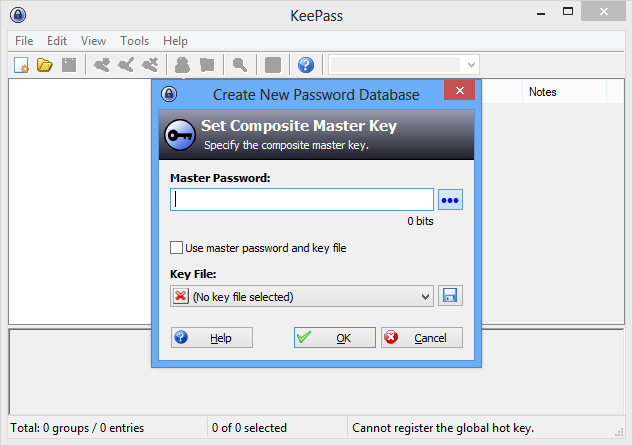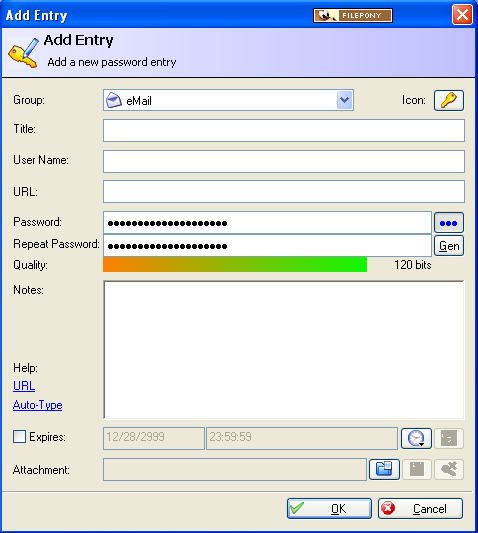
find_entries ( title = 'facebook', group = group, recursive = False, first = True ) Entry : "social/facebook (myusername)" > entry. find_group ( name = 'social', first = True ) > kp. find_entries ( title = 'foo.*', url = '.*facebook.*', regex = True, first = True ) > entry.

find_entries ( title = 'foo.*', regex = True ) > entry = kp. find_entries ( title = 'gmail', first = True ) Entry : "social/gmail (myusername)" > kp. If first=True, the function returns the first Entry match, or None if there are no matchesĪ flattened list of all entries in the database > kp. If first=False, the function returns a list of Entry s or if there are no matches The first (default False) boolean controls whether to return the first matched item, or a list of matched items. The history (default False) boolean controls whether history entries should be included in the search results. The group argument determines what Group to search under, and the recursive boolean controls whether to search recursively. The string dict allows for searching custom string fields. All other arguments are ignored when this is given. The path list is a full path to an entry (ex. This function has optional regex boolean and flags string arguments, which means to interpret search strings as XSLT style regular expressions with flags. Returns entries which match all provided parameters, where title, username, password, url, notes, otp, and autotype_sequence are strings, path is a list, string is a dict, autotype_enabled is a boolean, uuid is a uuid.UUID and tags is a list of strings. save () Finding Entriesįind_entries (title=None, username=None, password=None, url=None, notes=None, otp=None, path=None, uuid=None, tags=None, string=None, group=None, recursive=True, regex=False, flags=None, history=False, first=False) add_entry ( group, 'gmail', 'myusername', 'myPassw0rdXX' ) Entry : "email/gmail (myusername)" # save database > kp.


root_group, 'email' ) # create a new entry > kp. notes = 'primary facebook account' # create a new group > group = kp. password 's3cure_p455w0rd' # update an entry > entry. find_entries ( title = 'facebook', first = True ) # retrieve the associated password > entry. entries # find any entry by its title > entry = kp. find_groups ( name = 'social', first = True ) # get the entries in a group > group. Example from pykeepass import PyKeePass # load database > kp = PyKeePass ( 'db.kdbx', password = 'somePassw0rd' ) # find any group by its name > group = kp. This library allows you to write entries to a KeePass database.Ĭome chat at #pykeepass on Freenode or #pykeepass: on Matrix.


 0 kommentar(er)
0 kommentar(er)
